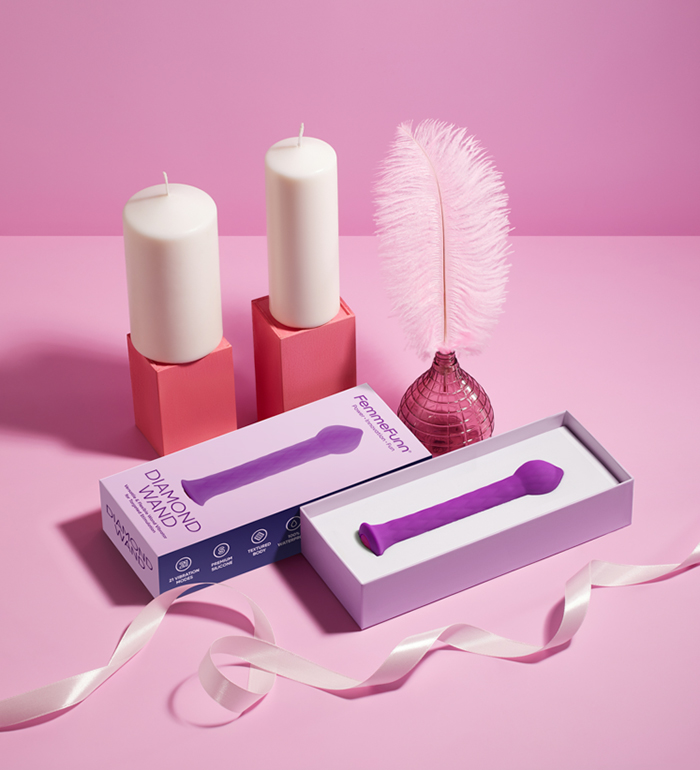No products in the cart.


Spilling the tea on wet dreams: Everything YOU need to know!
If there’s one thing that the Netflix hit series Sex Education taught us, it’s that for everything we know and have been taught about sexuality, we still don’t know nearly enough about the vagina.
Think of it this way: until very recently, the very existence of the clitoris was completely ignored!
So, as a teen waking up in the middle of a wet patch, no one would blame you for thinking that you had some sort of incontinence issue. Of course, if you happened to have a penis, there’s a very high chance that you’d know all too well that you had a nocturnal emission…because that’s just what happens, right?!
It’s hardly fair that those with penises are generally taught about the normality of wet dreams, while the same can’t be said for those with vaginas. As a result, many women just assume that we don’t have them.
But, what exactly is a “wet dream” and why do they occur? There’s a lot to know about wet dreams, some of which might surprise you…

Our Funn Wet Dream FAQ’s
What is a wet dream?
Simply defined, a wet dream occurs when you ejaculate or release vaginal fluids while sleeping. FYI, most individuals have them, and they are a totally normal component of sleep (but we’ll get into that a bit later!)
The term “wet dream” is, in itself, a bit of a misnomer because while a sex dream can result in some sleepy-time splooge, most occur without an apparent explanation.
Wet dreams occur during REM sleep when your breathing and heart rate rise, boosting blood flow throughout your body, including your genitals. Due to the increased blood flow, your genitals become hypersensitive to any stimulation.
You might wake up in the middle of a wet dream or sleep through it and only know you had one when you wake up with wet sheets.
You may not even remember your sex dream when you had your wet dream. Most of the time, your brain controls your dreams so that they focus on sexual symbols rather than scenes.
Women, for example, may have dreams of phallic-shaped items, whereas men may have dreams of tunnels and subways.
Do you only have wet dreams during puberty?
Nope. Wet dreams are more common during adolescence because your body undergoes significant hormonal changes that affect your sexual maturity.
But adults, too, experience erotic dreams, especially if they are sexually active.
Aside from hormonal fluctuations, wet dreams can be your subconscious mind’s way of dealing with stress. Consequently, orgasms can be quite calming. Therefore, it’s no surprise that the body resorts to a sexual release when sleeping.
Can individuals with vaginas have wet dreams?
Absolutely! Although the abundance of research and literature out there may make you think that only teenage penis owners have wet dreams.
No surprises here…there is a severe paucity of studies on wet dreams among people with vaginas. Still, recent evidence indicates that wet dreams are not exclusive to those with penises. According to current research, most vagina owners experience a sleep orgasm before age 21.
Why do wet dreams happen?
Women typically experience wet dreams from dreaming of erotic material involving sexual acts or other arousing dream material.
When whatever is going on in the dream is sufficiently erotic, a woman’s body may naturally respond by creating vaginal lubrication—and if she is sufficiently excited, an orgasm may also ensue.
Are wet dreams normal?
Totally! There is no need to be worried or concerned about wet dreams—even if they happen rather frequently—as long as the wet dreams feel good to the dreamer. And it’s completely normal not to have wet dreams and not recall having them.
Still, if your dreams ever become uncomfortable or traumatic—especially if there is a history of sexual abuse or a psychological issue—seek professional help as soon as possible.
Why are they most commonly associated with boys?
One primary reason is that when boys orgasm, they make semen, a tangible, visible liquid indicating they just orgasmed. But what about women?
The issue of female orgasms was also somewhat taboo until fairly recently—especially in the case of adolescent females. Wet dreams are therefore more commonly associated with younger males.
Do all sex dreams culminate in orgasm?
Nope. Not every sex act ends in orgasm; not every wet dream does either. On the other hand, having an orgasm does not necessarily result in ejaculation or dampness.
Wet dreams can occur both with and without orgasm. You don’t need to orgasm to have some vaginal wetness.
Because of the genital hypersensitivity during REM sleep, even brushing your bedsheets against your body might be enough to set it off.
Sexy thoughts before bed, a lack of sexual activity and orgasm in general, and a greater level of sex hormones can also play a role.
Why do I experience sleep orgasms yet struggle to orgasm while awake?
First and foremost, it is not uncommon to have problems with orgasm. Everyone’s capacity to orgasm differs, and many individuals have difficulties climaxing.
This can be caused by several factors, many of which may not impact you as much when you’re sleeping, such as:
- Chronic pain and other bodily ailments
- Mental health issues
- Previous sexual trauma
- Problems in a romantic or sexual connection
- Sex repression
- Not being adequately aroused
- Body image concerns and inhibitions
Your body and mind relax as you sleep, and your guard is down. Inhibitions related to your body and sex are less likely to impact your arousal. Furthermore, you may be aroused by things in your dream that you are unaware are turn-ons for you.
The good news is that if you can orgasm in your sleep and want to try having an orgasm while awake, your body is physically able. It might just be a question of exploring your fantasies and trying to discover what feels right for you. Experimenting with sex toys can help bring you closer to the Big O!
I’ve never experienced a wet dream before. Is this a common occurrence?
Not everyone will experience a wet dream. Some people have a few, while others have many.
Then there are some who, as teens, experience wet dreams but not as adults. Dreams are very intimate, one-of-a-kind experiences that are unique to each individual.
Can you make yourself have a wet dream?
Maybe. According to research, sleeping in the prone position (on your stomach) may result in sexual or erotic dreams.
It is unknown why this relationship occurs. However, if you want to put the hypothesis to test, lie on your stomach before going to sleep.
Can you avoid having wet dreams?
No, not at all. Sure, some dream specialists believe you can control your dreams.
How so? Some studies show that you may be able to influence your dreamland story. This is known as lucid dreaming, and some ways can help you achieve it.
Just remember that just because you use these techniques doesn’t imply you’ll be able to manage your dreams entirely. There is no way to ensure you will not have a wet dream.
In the words of Annie Lennox, sweet (wet) dreams are made of these…
Although not everyone will have a wet dream, there is nothing wrong with experiencing one.
Remember that sleep orgasms, like all orgasms, are profoundly personal. There is no right or wrong way to have one — or two, three, or four. 💦

